
Last week we celebrated the launch of Manufacturing Futures 2024 at a sold-out event at The Trampery.
Marking Fashion District’s sixth innovation challenge, this year the focus is on technological innovations and sustainable solutions that are solving any of the complex fashion manufacturing challenges facing the industry. Helen Lax, Director of Fashion District, described the event as a gathering of individuals that share ‘the same ethos, values and ideas for the future of fashion and sustainability.’
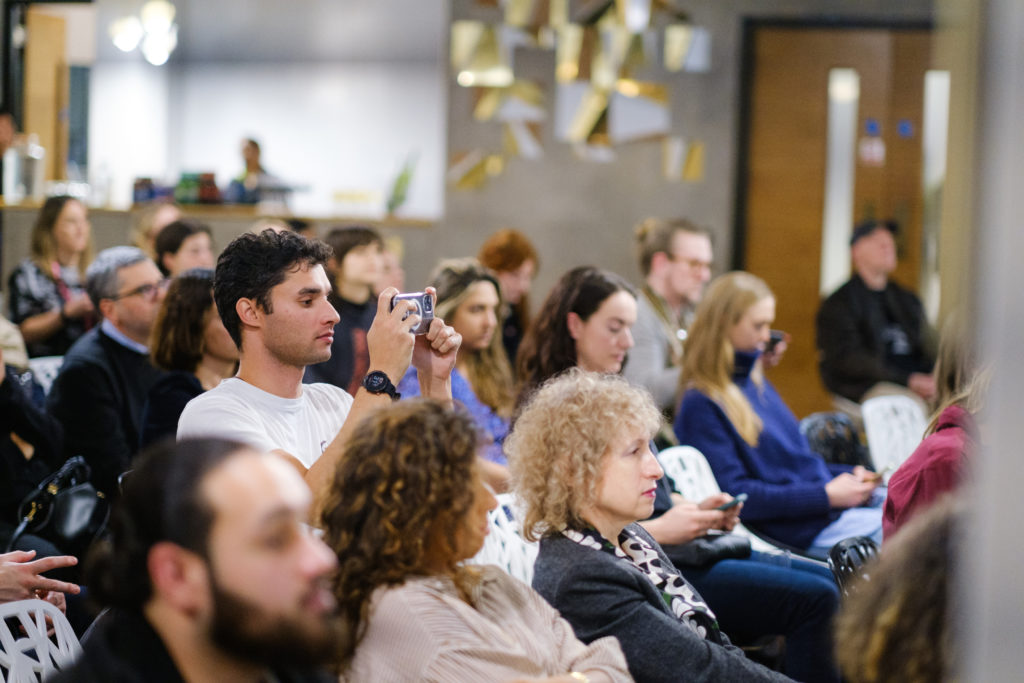
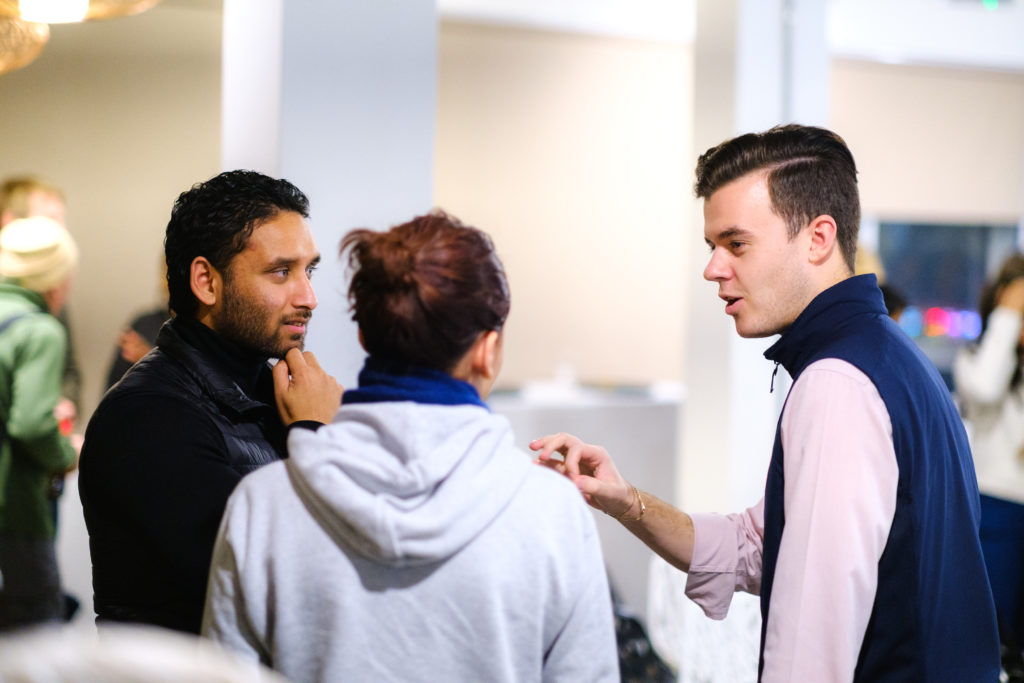
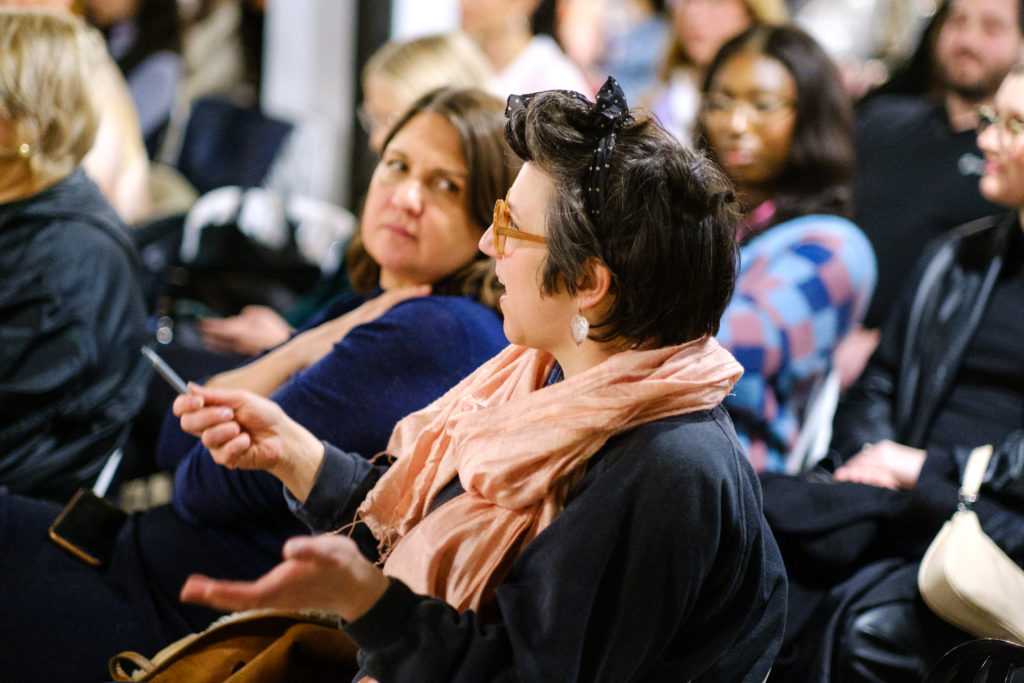
Kicking off the event was keynote speaker Lauren Bartley, Chief Sustainability Officer at GANNI, who gave insight into GANNI’s strategy and how they work with innovation. ‘GANNI has a very very ambitious goal to reduce its carbon emissions by 50% by 2027,’ Lauren said. ‘The materials we use account for 50% of our carbon impact, making this our primary window of opportunity. It’s also where Ganni should focus as materials represent one of our most significant decarbonisation levers.’
Lauren also highlighted GANNI’s Fabrics of the Future initiative. ‘Fabrics of the Future is an internal research and development hub that scans the market for fabrics that will change the industry. At this point we’re working with thirty different material creators that have solutions or new innovations for materials. By 2025 the goal is that 10% of our materials should be coming from fabrics of the future.’
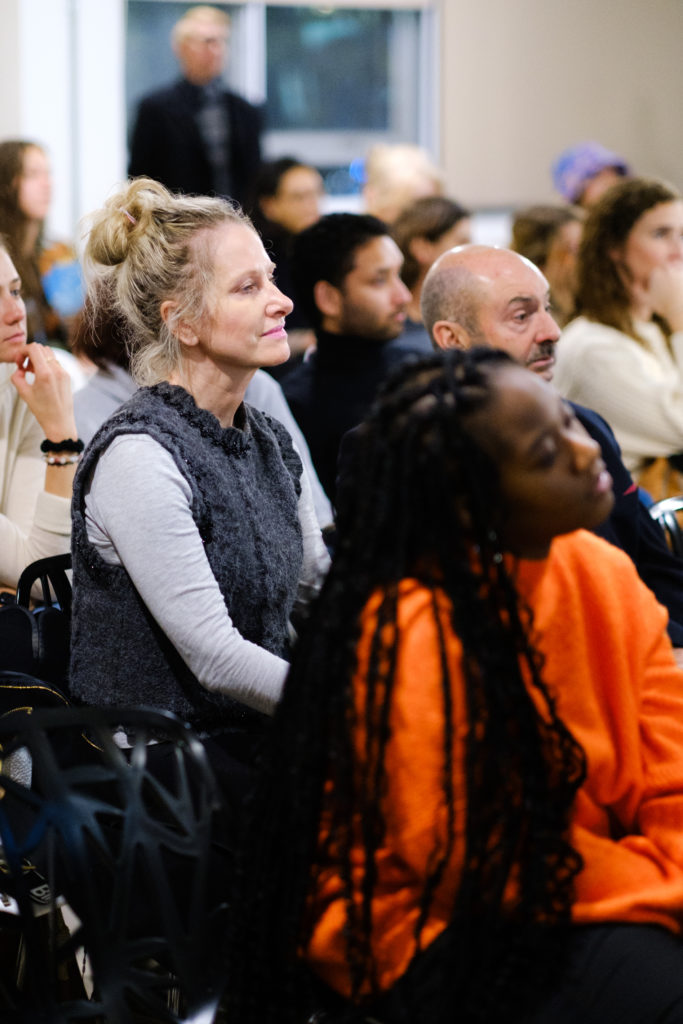
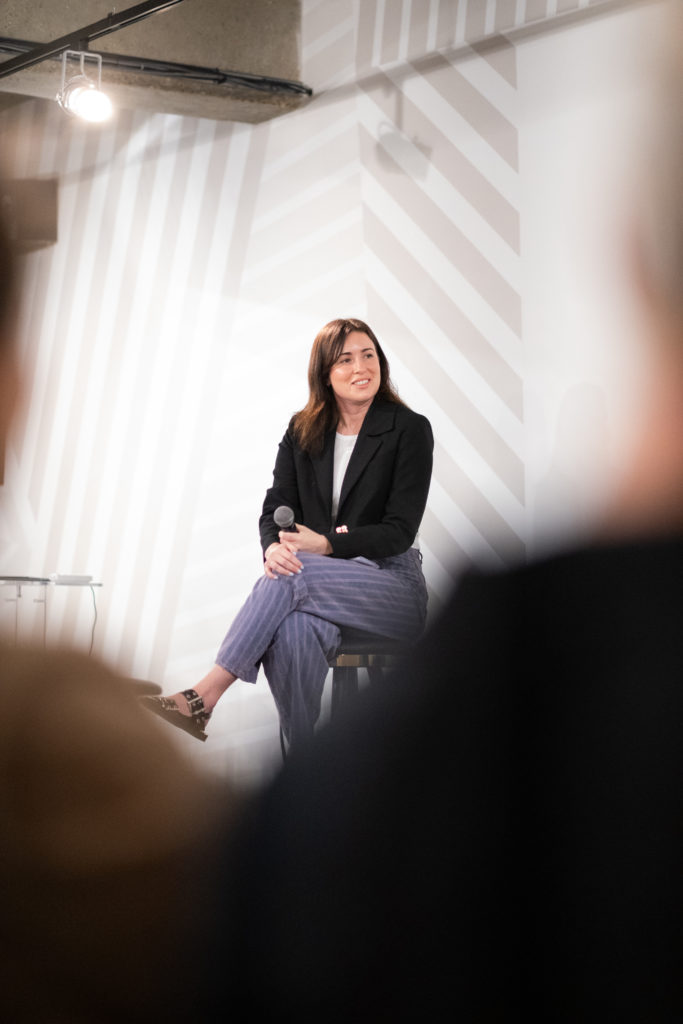
One of the material creators GANNI have collaborated with is London-based biotech company Modern Synthesis. Lauren invited Jen Keane, CEO of Modern Synthesis, on stage to discuss their recent partnership.
Having developed a new class of biomaterials, Modern Synthesis works with bacteria to produce a type of non-woven textile that can be used to displace materials like leather, and in the future replace a wide variety of coated textiles. Modern Synthesis partnered with GANNI to reimagine their staple Bou Bag in their new innovative bacterial nanocellulose material. The handbag was unveiled at the London Design Festival 2023.
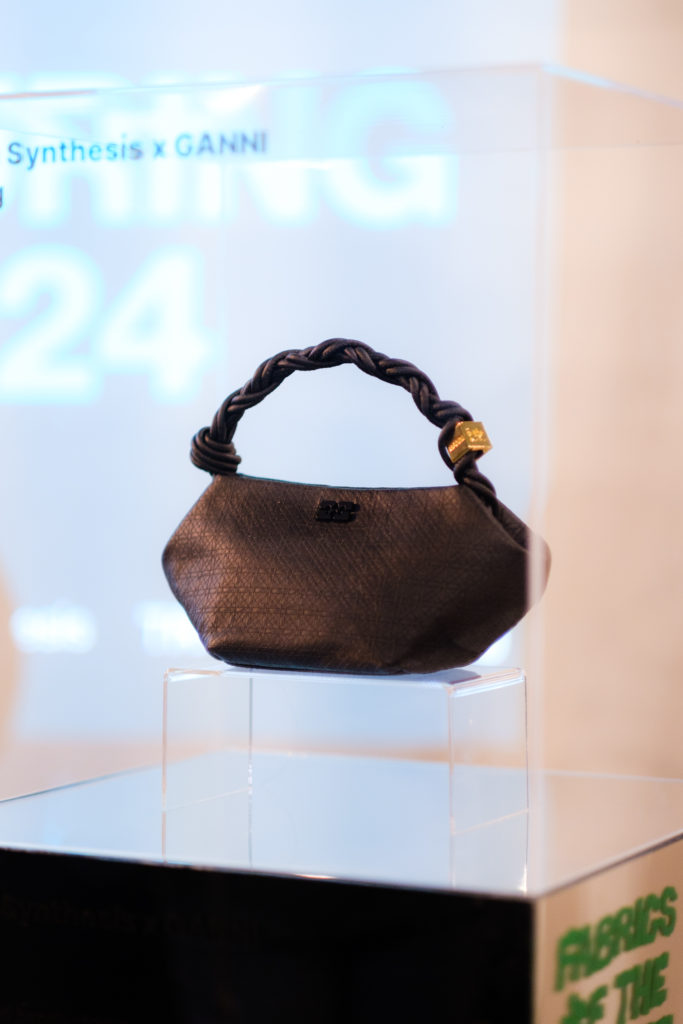
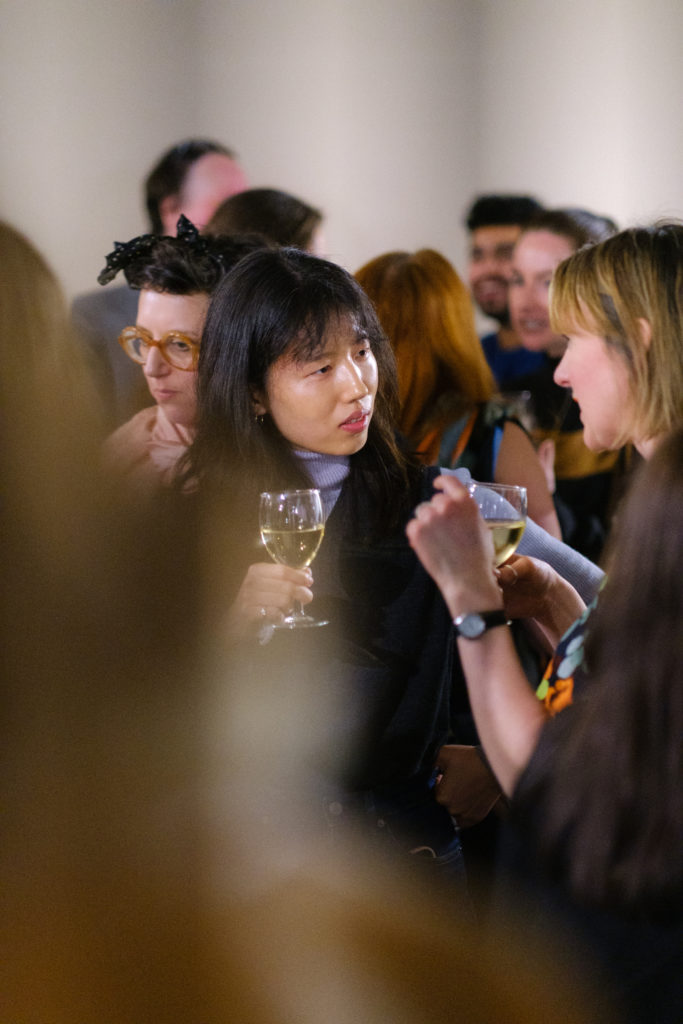
Explaining why Modern Synthesis reached out to GANNI to propose a potential collaboration, Jen said, ‘As a startup that makes materials, we can’t do it all. We need to actually make the impact that we want to drive and so we have to get it into a product. We need brands and partners across the whole supply chain to make that possible. We contacted GANNI because they have such a strong perspective in this space and actually take action. Very few brands have innovation departments.’
Lauren rounded up the conversation by saying: ‘I hope that what you’ll take away from our talk today is that GANNI relies heavily on innovations like Modern Synthesis to meet our sustainability goals, and vice versa. Jen needs brands like GANNI to secure investment and effectively implement these technologies. It’s important not to underestimate the value of partnership.’’
Offering one final tip to the audience Jen said, ‘Don’t give up! It’s hard but we’re gonna get there. My biggest advice is to collaborate as much as possible. You can’t do everything yourself. Figure out what you’re good at, what you’re not good at, and find friends to do the things you’re not good at.’
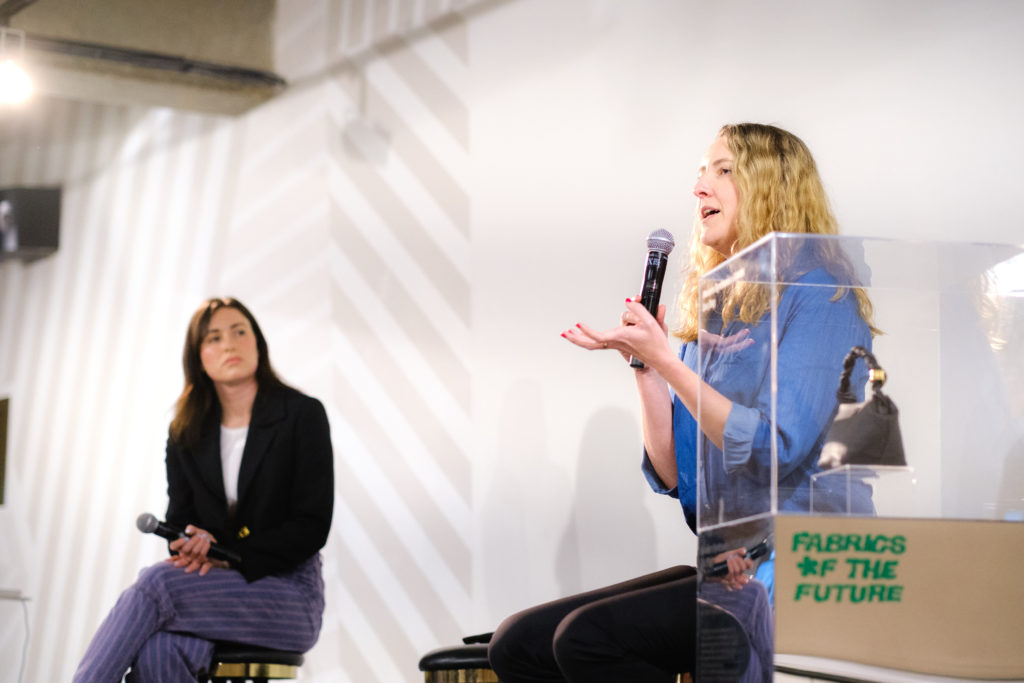
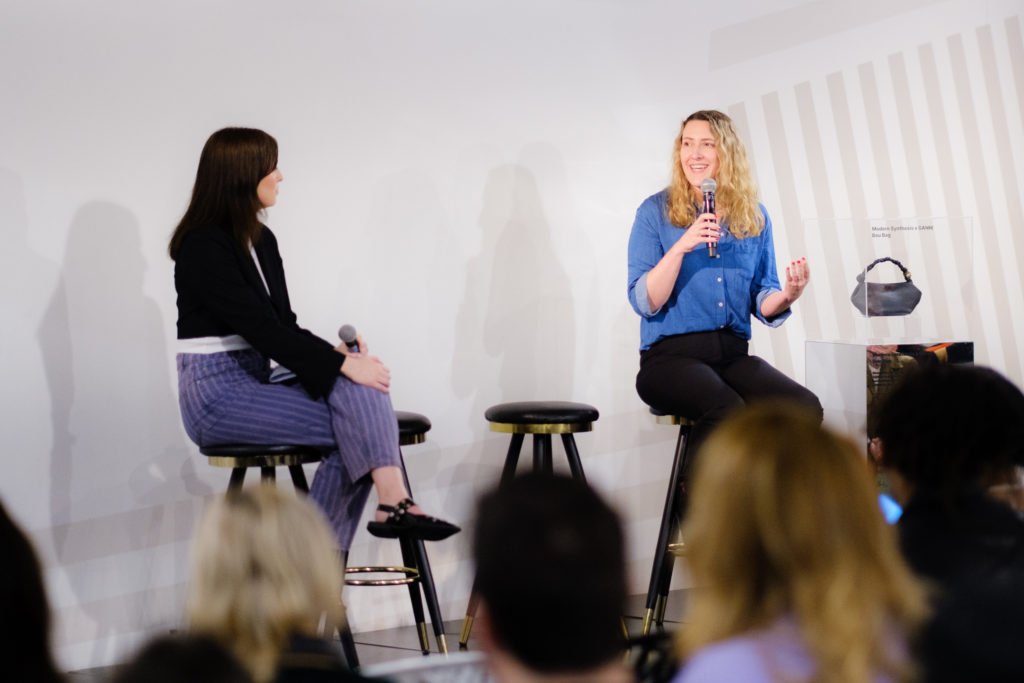
Helen Lax then took to the stage to introduce this year’s innovation challenge, Manufacturing Futures 2024. ‘This year, we’re seeking innovative ideas, businesses, and startups that can benefit the fashion industry by offering sustainable solutions for various aspects of the supply chain.’
To be eligible for the challenge, applicants must have a tech-based solution, be a registered business, and either be operating in the UK or have plans to pilot or operate in the UK. The winner will take home £15,000, as well as receiving business support from PANGAIA, one-year complimentary UKFT membership, one-year workspace membership at The Trampery and one-year platform membership from Common Objective. The runners-up will receive £5,000 each, one-year UKFT membership and one-year platform membership from Common Objective.
Finalists will attend a one-day event in May where high-level industry professionals will act as ‘critical friends’ to support and challenge their business proposition, and provide constructive feedback; as well as two Development Days focused around production and investment. Finalists will also be invited to join the celebratory Fashion District Innovation Awards and Investment Supper in July, attended by influential members of the fashion, tech and investment industry.
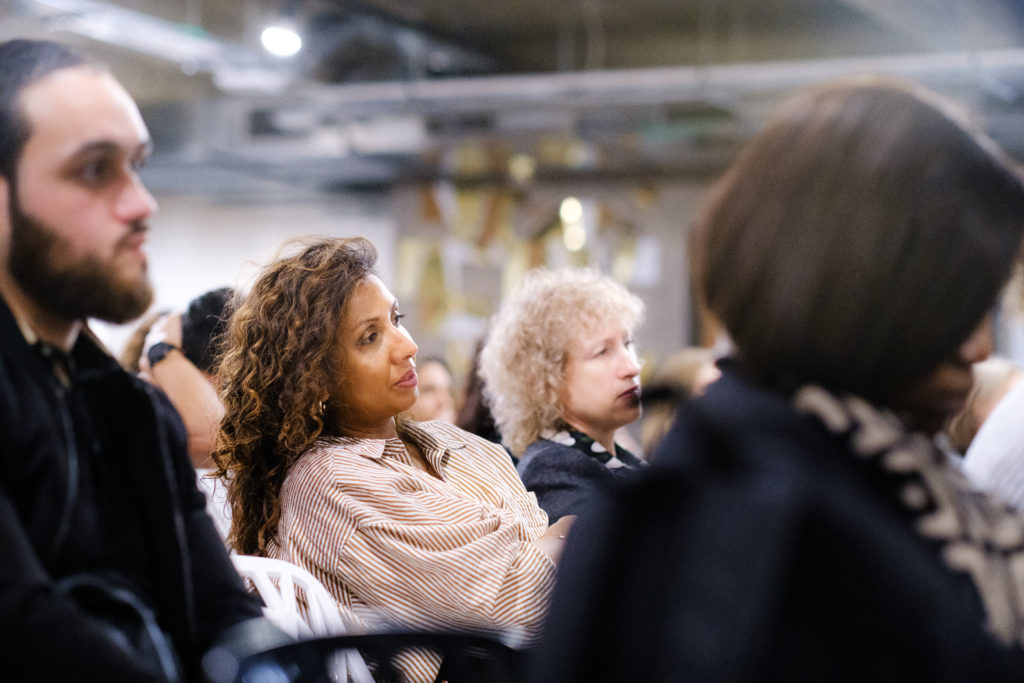
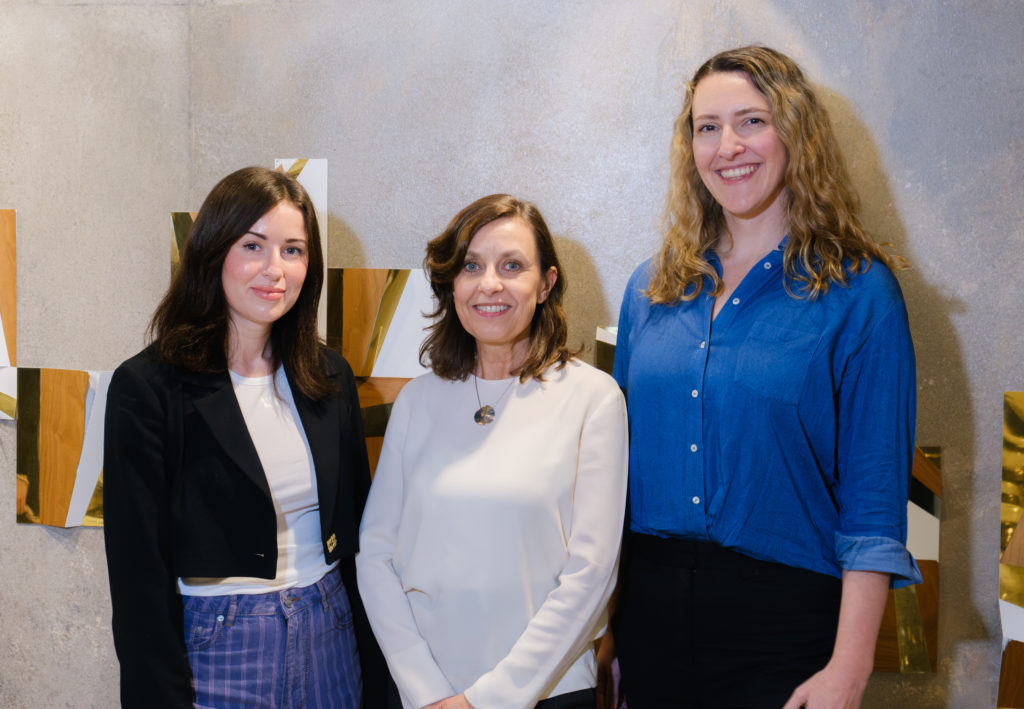
After running through the details of this year’s manufacturing challenge, it was time to hear from our incredible judging panel: Chelsea Franklin, Head of Advanced Concept Design, PANGAIA; Adam Mansell, CEO, UKFT; Gillian Lipton, Head of Sustainability, Alexander McQueen; Ella Gould, Head of Circularity and Innovation, Selfridges, and Matthew Drinkwater, Head of Fashion Innovation Agency, UAL: London College of Fashion.
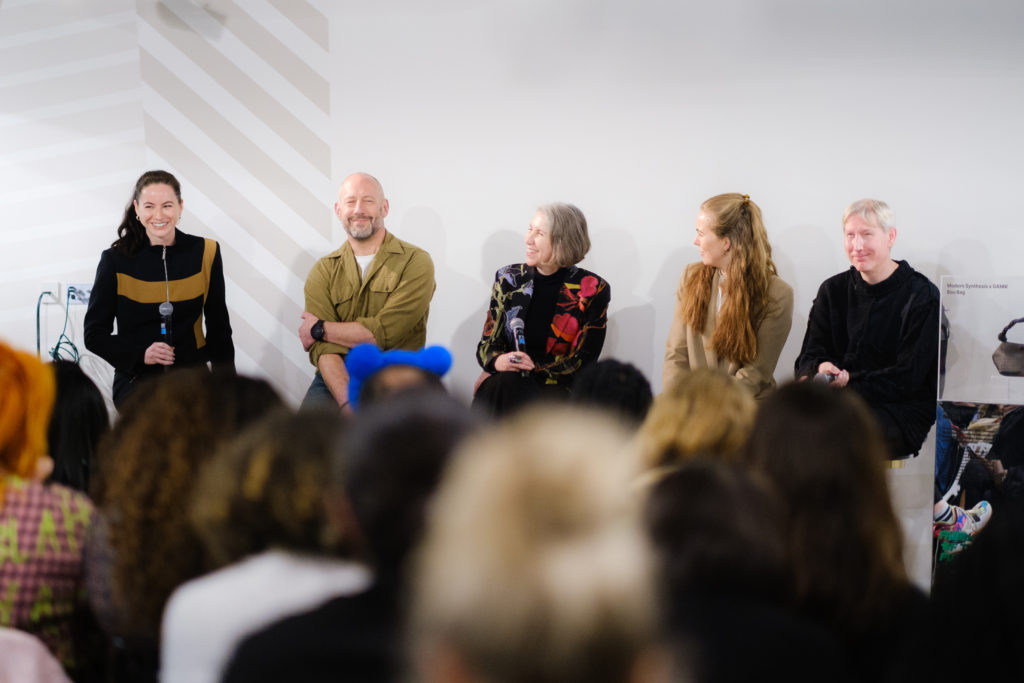
Discussing their criteria for the challenge, Matthew Drinkwater said, ‘Above all, I want to feel excitement for an application that I’m reading. It’s that magical moment…you want to transform the innovation into a real thing.’
Ella Gould added, ‘I’m always sceptical when someone comes to me with big tech and they only talk about the technology. Come to me with a problem, tell me the problem that you’re solving or why you’re doing something better. That for me is when the juices start flowing and I get really inspired.’
Gillian Lipton stressed the importance of time. ‘For me it’s all about finding a solution that is scalable, but also that I don’t have to wait too long for. I’m aware that things take time, in terms of innovation and new materials, but we don’t have time!’
Adam Mansell stated the biggest problem for him was volume. ‘I love new materials, new materials are fantastic, but if someone came up with a concept that would allow us to take all the cotton, polyester, and wool that we use, capture it, recycle it, get it manufactured in the UK, that gets my vote. You’d get lifetime membership to UKFT if you can solve that! But genuinely that’s where the problem is. That’s where the focus really needs to be.’
Chelsea Franklin urged applicants to consider the customer. ‘Functionality is obviously very important in terms of innovation performance, but also understanding how to convince a consumer to buy something, such as an alternative fabric – why? If the price is so much more significant, why should they purchase it? How do you tell that story? Build that narrative?’
The event concluded with key advice from the judges. Matthew Drinkwater advised applicants to think about clarity of message. ‘What problem are you solving? Answer all of those questions fully and critically, and you stand a really good chance of getting through.’
Chelsea Franklin echoed this. ‘Articulating your vision is a skill in itself. We want to know what problem you’re solving, problem solution framing, and why we should care. If you can answer that clearly and visually that’s my top tip.’
‘Don’t bring me something that’s been done five years ago,’ Adam said. ‘Do your homework. Do proper market research. Also read the application questions carefully and answer them clearly. Look at the finances bit, because it’s really important that you’re thinking beyond the initial. Think about what the future looks like, and don’t tell me that you’re going to be a billion pound turnover company in five years time. It’s hard work. It takes a lot of effort and collaboration and that should not be why you’re in this space, you should be in this space to solve a problem.’
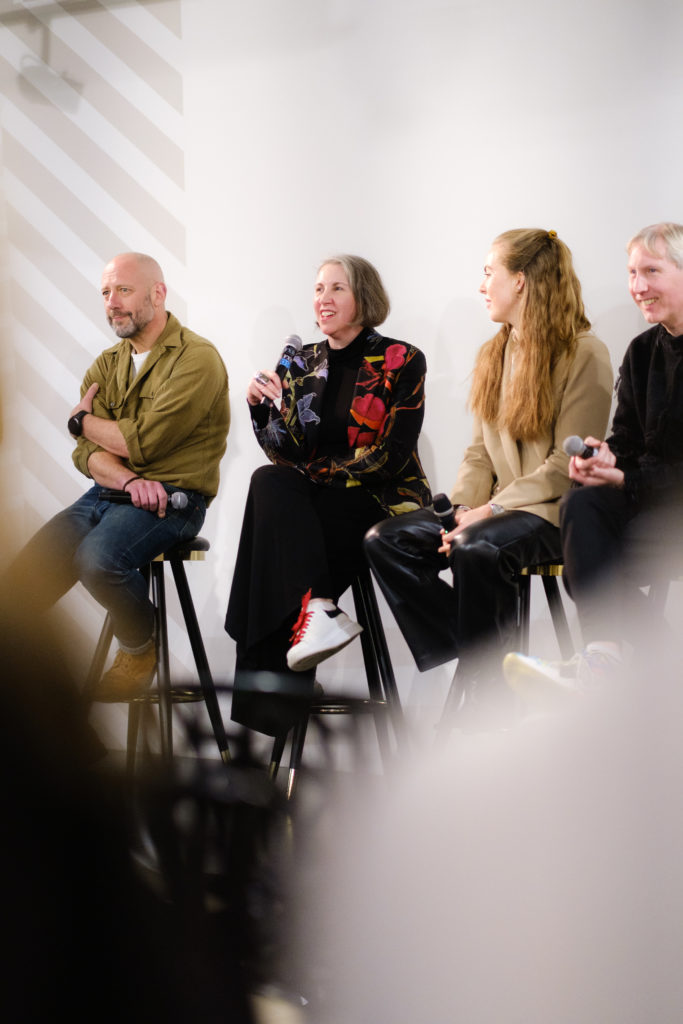
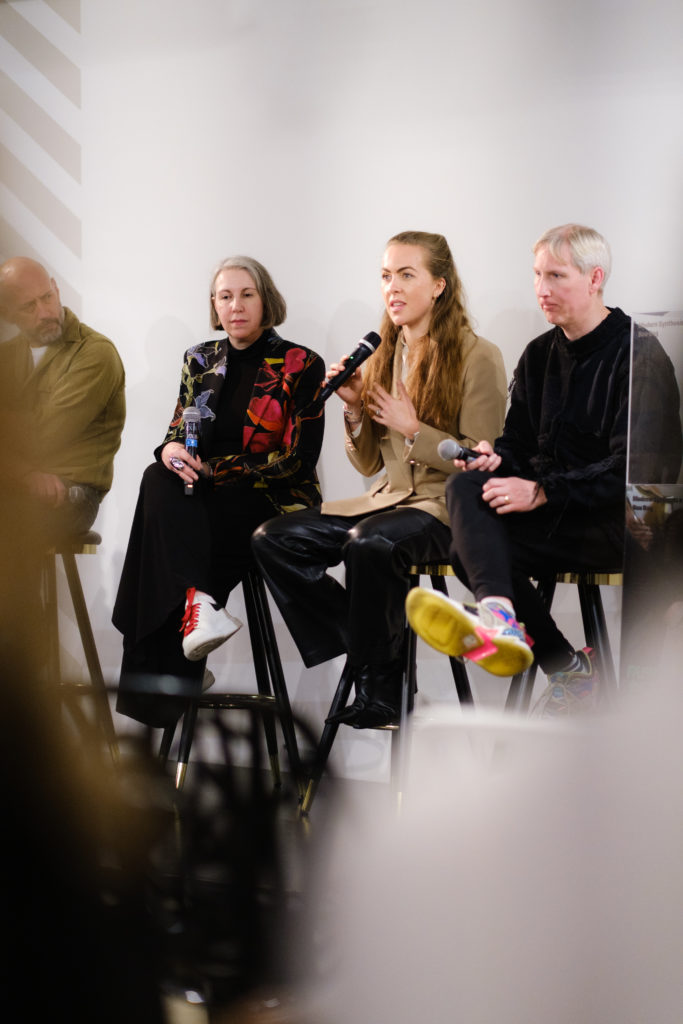
Do you think you’ve got what it takes to manufacture a new sustainable solution? Want to be in with a chance of winning £15,000? Applications for Manufacturing Futures 2024 are now open!
Follow us on Instagram, LinkedIn, Facebook and Twitter to stay update-to-date on our latest events and opportunities:
